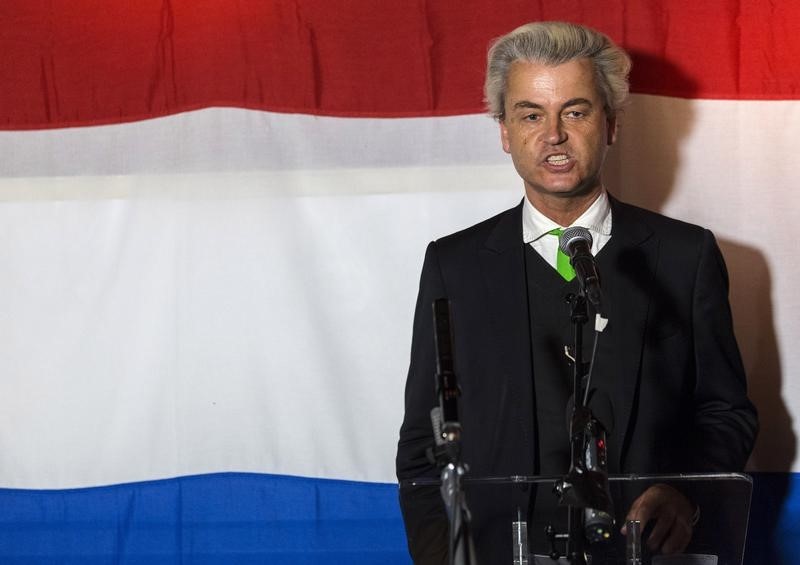* Major parties neck and neck ahead of July 2 general election
* Anti-Islamist candidates court support from smaller towns
* Rise of Australian far right candidates echoes European shift
* Far right support limited but seen influencing debate
By Jonathan Barrett
BATHURST, Australia, June 23 (Reuters) - Kirralie Smith, the political activist helping drive Australia's newest and arguably best organised far right party, addresses the small crowd with her hands open, arms extended over the lectern, as if reaching out for converts.
Australia, she said, must get out of the "irrelevant" United Nations refugee convention. Every industry in Australia is dominated by "left-wing socialist agendas". Islamist ideas are being "shoved down your throats".
After almost two decades of political silence in Australia, the far right is making itself heard again.
Smith, a mother-of-three and one of the most visible Australian Liberty Alliance (ALA) candidates, is one of several anti-Islam, overtly patriotic political hopefuls trying to secure a place in the country's next parliament at the July 2 national election.
The rise of the ALA and other far right parties in Australia echoes what has been seen in Europe, where centrist governments are being challenged and the United Kingdom has been pressured to hold a referendum on its European Union membership.
The ALA, inspired and launched last year by popular far-right Dutch MP Geert Wilders, called for a 10-year moratorium on Muslim immigration well before U.S. presidential candidate Donald Trump proposed a similar policy.
The broader movement has waged campaigns against issues such as foreign aid, halal food labelling and mosque-building along with more mainstream topics such as sales of farmland to foreigners.
PULL TO THE RIGHT
In 2015 and 2016, street rallies organised by anti-Muslim groups the United Patriots Front and Reclaim Australia turned violent as rival protesters clashed in several cities.
But the more polished political campaign to win seats in parliament is being waged in Australia's regional centres.
The often lively meetings are held in town halls, community centres and lawn bowling clubs in towns like Bathurst, a former gold mining centre best known for its annual V8 car race.
"It's not going to all be resolved the next term of government, it's not," Smith told two dozen supporters at a recent meeting in the town three hours west of Sydney.
"But unless people like me are in there, we don't have a hope."
Those people include Pauline Hanson, the populist politician who ushered in the modern Australian far-right movement with her tough stances against migration and asylum seekers in the 1990s.
"I think that I raise the issues that concern a lot of people which forces the hand of the major political parties to start listening to the people. They are fearful of losing their votes, and it's going to happen again this time," Hanson told Reuters.
"They don't want to see any more refugees in the country. People are struggling, they can't even get the services provided to them let alone bring other people in," said Hanson, whose policies include a call for curbs on immigration and a ban on Muslim refugees.
Political parties including the ALA and Hanson's One Nation have focused on winning a seat in the Senate, as opposed to the House of Representatives.
Polls are predicting a close contest between the ruling Liberal-National coalition and main opposition Labor Party, meaning even a few far-right senators could have a major influence.
Peter Chen, politics and media lecturer at the University of Sydney, said they have already had an impact on Australian politics.
"Certainly the mainstream parties, as they have reached consensus around asylum seekers and offshore detention shows that they have attempted to adopt or at least co-opt the core policy messages of some of these far right groups," said Chen, referring to Australia's policy of housing asylum seekers and refugees in offshore processing centres.
It remains unclear whether the increased profile of far right candidates will translate into political influence on July 2. The centrist Nick Xenophon Team is expected to attract considerable support from those protesting against the policies of the major parties, and the Australian Greens have become the country's established third party.
REGIONAL FOCUS
Analysis of voting intentions by thinktank The Australia Institute has found that Hanson will likely win a Senate position.
The ALA, launched in October last year, does not have the same name recognition among voters. By the party's own admission, it will take a couple of elections before it becomes a "major force to be reckoned with" although Australia's complex preferential voting system sometimes delivers wins to unexpected candidates.
Like Hanson, the ALA has focussed most of its early campaigning outside of capital cities, finding support in struggling regional towns with higher unemployment and fewer immigrants.
One attendee at the ALA's Bathurst event, 28-year-old Amanda Paddon, said she "wanted to get our country back". A middle-aged man said he did not want to be identified out of fear he would be put on an Islamic "hit list".
Smith wants to replicate the success of Wilders' Party for Freedom, which is beating the traditional major parties in opinion polls in Holland after being launched just over 10 years ago.
"I don't think it will take that long in Australia because people are waking up, people are saying, 'We don't want to be like Europe, we don't want those problems.' And we don't have to have those problems."
<^^^^^^^^^^^^^^^^^^^^^^^^^^^^^^^^^^^^^^^^^^^^^^^^^^^^^^^^^^^ Graphic on Australia opinion polls
http://tmsnrt.rs/28JtrTT
^^^^^^^^^^^^^^^^^^^^^^^^^^^^^^^^^^^^^^^^^^^^^^^^^^^^^^^^^^^> (Editing by Lincoln Feast)
